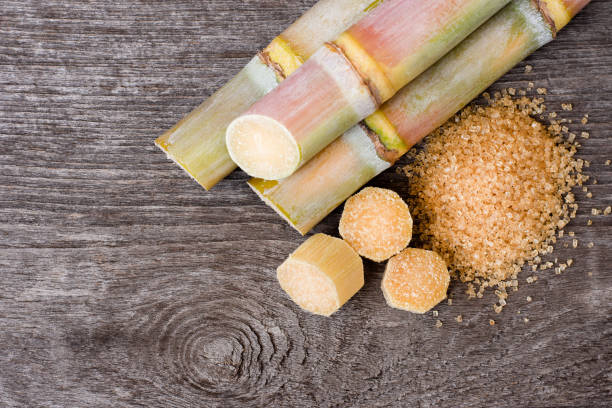Why Walking Stick Sugar Processing Chemicals Are Important for Modern Sugar Refining
The function of walking cane sugar handling chemicals in contemporary sugar refining can not be overemphasized, as they are important to enhancing both the effectiveness of extraction and the general high quality of the last product. Agents such as phosphoric acid and specific flocculants are used to eliminate impurities, resulting in sugar that not only fulfills customer expectations however likewise sticks to industry criteria.
Duty of Processing Chemicals
The efficiency of cane sugar processing pivots considerably on the strategic application of handling chemicals. These chemicals play an essential function in boosting the efficiency and high quality of sugar extraction and refining. From the first stages of juice removal to the last purification steps, handling chemicals help with numerous vital operations.
In the removal phase, chemicals such as phosphoric acid and calcium hydroxide are used to maximize the explanation process, helping to get rid of contaminations and put on hold solids from the cane juice. This not just boosts the return however likewise guarantees the clarity of the last item. In addition, representatives like flocculants aid in the fast settling of impurities, therefore improving the overall process.
Activated carbon and ion exchange materials offer to get rid of color and smell, making certain that the polished sugar fulfills customer high quality standards. Thus, the careful option and application of these chemicals are important for accomplishing ideal results in walking stick sugar handling.
Secret Kinds Of Chemicals
Walking stick sugar handling relies upon a range of essential chemicals that assist in each phase of production. These chemicals play essential roles in clarifying, whitening, and purifying the sugar extracted from cane.
One primary category of chemicals consists of flocculants, such as polyacrylamide, which aid in the explanation process by advertising the gathering and settling of contaminations. In addition, calcium hydroxide is typically employed to counteract acidity and aid in the removal of non-sugar elements.
Lightening representatives, such as activated carbon and sulfur dioxide, are used to decolorize the syrup, resulting in a more clear last product. These chemicals help remove color substances that may impact the sugar's look and bankability.
In addition, phosphoric acid serves as a pH regulatory authority during the processing stages, making sure optimal conditions for the enzymatic tasks entailed in sugar removal and filtration.
Various other crucial representatives include edta (ethylenediaminetetraacetic acid), which chelates steel ions that might militarize unfavorable responses, and sodium hydroxide, which aids in pH control throughout the refining process. Jointly, these chemicals enhance efficiency and guarantee a high-grade cane sugar product.
Benefits for Sugar Quality
Often forgotten, using details processing chemicals significantly improves the total high quality of walking cane sugar. These chemicals play a crucial duty in refining processes, making certain that the end product satisfies strict industry requirements for pureness and taste.

In addition, refining chemicals aid in accomplishing a consistent granulation and structure, which are essential for customer approval. By regulating the condensation procedure, these chemicals guarantee that the sugar crystals develop consistently, resulting in a more attractive item that liquifies well in various applications.
Additionally, the use of these chemicals can boost the service life of walking stick sugar by reducing wetness absorption and microbial development. Overall, important source the critical application of processing chemicals is crucial for providing top quality cane sugar that fulfills customer expectations and market demands.
Ecological Impact Factors To Consider

Moreover, the energy-intensive nature of sugar refining, compounded by chemical use, often causes boosted carbon exhausts. This adds to climate modification and increases issues relating to the sustainability of existing refining methods. Additionally, the sourcing of these chemicals might entail methods that threaten biodiversity, such as monoculture farming, which lowers the resilience of agricultural environments.

To reduce these influences, sugar refiners are significantly discovering sustainable choices and adopting finest methods that reduce chemical usage. Implementing rigorous environmental monitoring systems can help ensure that the refining process straightens with environmental requirements and promotes biodiversity. Ultimately, a balanced approach that prioritizes both sugar quality and environmental stewardship is vital for the long-lasting stability of the sugar sector.
Future Patterns in Refining
As the sugar sector grapples with the ecological challenges associated with typical refining methods, cutting-edge techniques are arising to boost both efficiency and sustainability. One significant fad is the adoption of environment-friendly chemistry principles, which focus on making use of safe, eco-friendly processing chemicals. This change not just reduces ecological impact but also addresses consumer demand for cleaner production methods.
An additional appealing advancement is the execution of innovative filtering innovations, such as membrane layer separation and adsorption processes. These methods boost the quality and quality of the sugar while decreasing the volume of wastewater produced during refining. Furthermore, the integration of digital innovations, including IoT and AI, check this is changing functional effectiveness by making it possible for real-time tracking and anticipating upkeep, hence minimizing source waste.
Moreover, using by-products from sugar refining, such as bagasse and molasses, is getting traction. These materials can be transformed into biofuels or value-added items, adding to a circular economy within the sector. Collectively, these fads signify a change towards more sustainable methods that not only improve functional effectiveness yet likewise straighten with worldwide sustainability goals, ensuring the future feasibility of sugar refining.
Final Thought
Cane sugar processing chemicals are necessary in contemporary sugar refining, significantly enhancing the efficiency and top quality of sugar extraction. The critical use these chemicals not just boosts the purity and flavor of the final item however additionally makes sure regular crystallization and texture. As the market significantly prioritizes sustainability, the adoption of environmentally-friendly processing agents is likely to form future fads in refining, ultimately resulting in better items and prolonged shelf life for customers.
:max_bytes(150000):strip_icc()/SugarCanesSaccharumofficinarumNancyAyumi-26c9c80ee473464bbe322c83ecd9bfc1.jpg)
Ultimately, a well balanced technique that focuses on both sugar top quality and environmental stewardship is crucial for the long-lasting stability of the sugar sector.
Walking stick sugar handling chemicals are crucial in modern sugar refining, dramatically enhancing the efficiency and quality of sugar extraction.